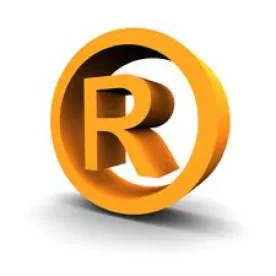While it always has been advisable to seek the assistance of an experienced trademark attorney to handle trademark matters, beginning August 3, 2019 (Effective Date), federal trademark applicants, registrants, and parties to proceedings before the Trademark Trial and Appeal Board (TTAB) whose domicile or principal place of business is outside of the United States or its territories must be represented by a "qualified U.S. attorney" (U.S. Attorney). This new rule is designed to improve the integrity of the U.S. Principal Register and enforce compliance with U.S. statutory and regulatory requirements.
Reason for New Rule
In recent years, there has been a noticeable increase in U.S. trademark applications filed by foreign-based individuals and companies. In 2015, the U.S. Trademark Office (USPTO) reported that just 19 percent of the total new applications filed were by foreign-based applicants. In 2017, that percentage rose to 26 percent of the total new applications. The USPTO expects that increase to continue.
Not only is the increased volume straining the USPTO’s limited resources, but inaccurate and fraudulent filings make examination more time consuming and clearance and enforcement efforts more costly for legitimate rights holders. This is because many of the applications or renewal documents filed by foreign-based owners do not comply with the Trademark Act and/or USPTO rules in some way. The most common issues are wrongly claiming use in commerce and mocked-up or digitally altered specimens of use. While some of these issues may be inadvertent, there are foreign individuals and entities who are not authorized to represent trademark applicants before the USPTO that are providing incorrect advice to or representing foreign-based trademark applicants and registrants. These parties are engaged in the unauthorized practice of law. Given that these unauthorized individuals or entities mostly are based outside of the United States, current mechanisms and sanctions for handling the unauthorized practice of law have been ineffective and inadequate to curb the problem.
Who is Affected by the New Rule?
The new rule requiring the appointment of a U.S. Attorney applies to “foreign-domiciled” trademark applicants, registrants, or parties to proceedings before the TTAB. “Foreign-domiciled” means either or both:
-
An individual with a permanent legal residence outside the United States or its territories
-
An entity with its principal place of business (headquarters) outside the United States or its territories.
In response to the public concern about the possible use of falsified U.S. addresses to circumvent the new requirement, the USPTO will train examining attorneys on identifying characteristics of applicant information that would warrant further inquiry.
Who Qualifies as a U.S. Attorney?
As of August 3, 2019, the USPTO will require the appointment of a U.S. Attorney. This means an attorney who is an active member in good standing of the bar of the highest court of a U.S. state (including the District of Columbia and any Commonwealth or territory of the U.S.) and who is qualified to represent others before the Office in trademark matters.
There are concerns that individuals or entities engaged in the unauthorized practice of law or foreign-domiciled parties will attempt to circumvent the new rule by providing false contact information or contact information for attorneys not handling the matter. Powers of attorney will become more important than in the past, and U.S. Attorneys will be required to prove they qualify by providing additional information, such as bar numbers and dates of admission. However, to reduce the risk of attorney bar information being misused by bad actors in trademark filings, the USPTO intends to mask in the public database bar information that is entered in dedicated fields.
When Must a U.S. Attorney Be Appointed?
Generally, filings with the USPTO made by a foreign-domiciled party after the Effective Date concerning the prosecution, maintenance, or renewal of its application or registration will require a U.S. Attorney. Necessary actions to be taken or filings in a TTAB proceeding by a foreign-domiciled party occurring after the Effective Date also will require a U.S. Attorney. There is no “grandfathering” for applications filed or proceedings commenced prior to the Effective Date.
New and Pending Applications
New applications filed on or after the Effective Date by a foreign-domiciled applicant based on use in commerce, intent to use, or a foreign registration will require a U.S. Attorney. If no U.S. Attorney is appointed in the application, the USPTO will issue an office action requiring the appointment of a U.S. Attorney. The office action will provide six months to comply with the requirement and to respond to any other issues raised in the office action. Failure to timely respond to the office action or to comply with the requirement to appoint a U.S. Attorney will result in abandonment of the application.
If a foreign-domiciled applicant filed an application based on use in commerce, intent to use, or a foreign registration before the Effective Date but an office action issued after the Effective Date or an office action issued before the Effective Date but the applicant plans to respond after the Effective Date, a U.S. Attorney must be appointed for the response.
Madrid Applications
Applications filed via the Madrid Protocol are not filed with the USPTO and thus will not initially require the appointment of a U.S. Attorney. Prior to publication, applications that meet all formalities and statutory requirements may proceed without an appointed U.S. Attorney. This is because there is currently no mechanism for the USPTO to require the appointment of a U.S. Attorney in an application filed in the Madrid system. However, if the USPTO issues an office action, the application will be subject to the requirement going forward.
Post-Registration
For post-registration documents, such as maintenance and renewals, an acceptable document filed before the Effective Date will not require appointment of a U.S. Attorney. However, if a post-registration office action is issued after the Effective Date, the registrant must appoint a U.S. Attorney for the response.
TTAB Proceedings
For proceedings before the TTAB, such as oppositions and cancellations, all proceedings filed by foreign-domiciled on or after the Effective Date must appoint a US Attorney. For pending TTAB proceedings, if a foreign-domiciled party must take further action, the TTAB will suspend the proceeding and inform the party of the time frame within which it must appoint a U.S. Attorney.
Letters of Protest
Foreign-domiciled parties wishing to submit letters of protest are not required to appoint a U.S. Attorney because the requesting party is not an applicant, registrant, or a party to a TTAB proceeding.





 />i
/>i

